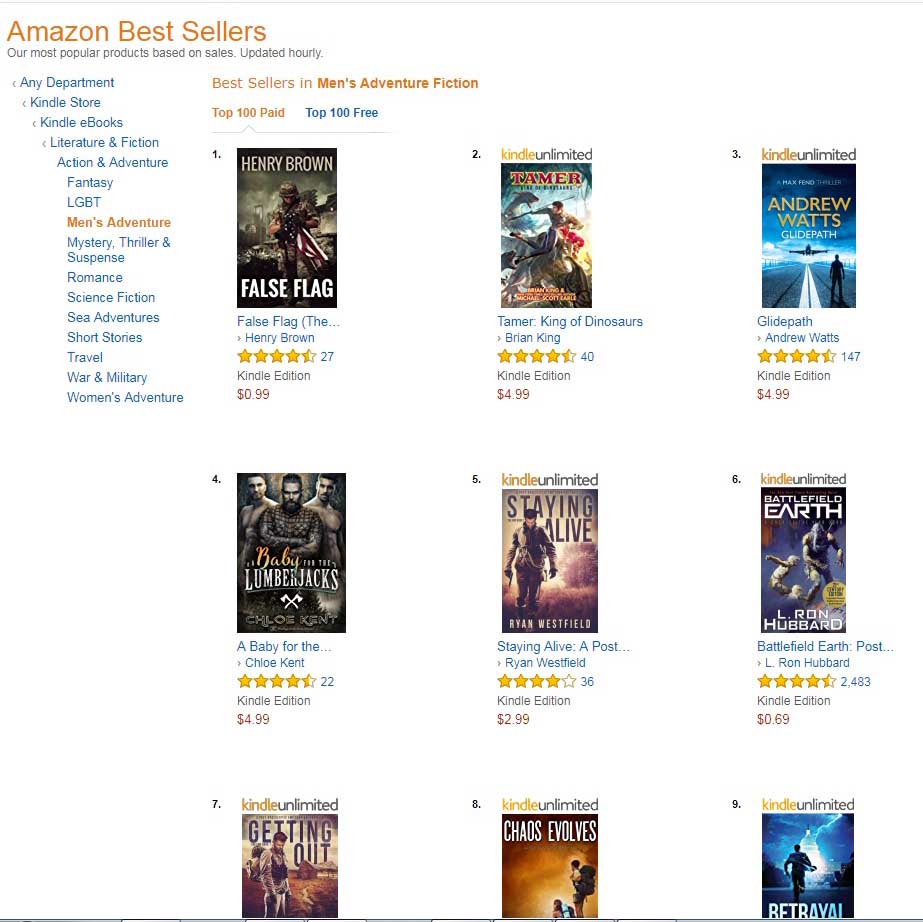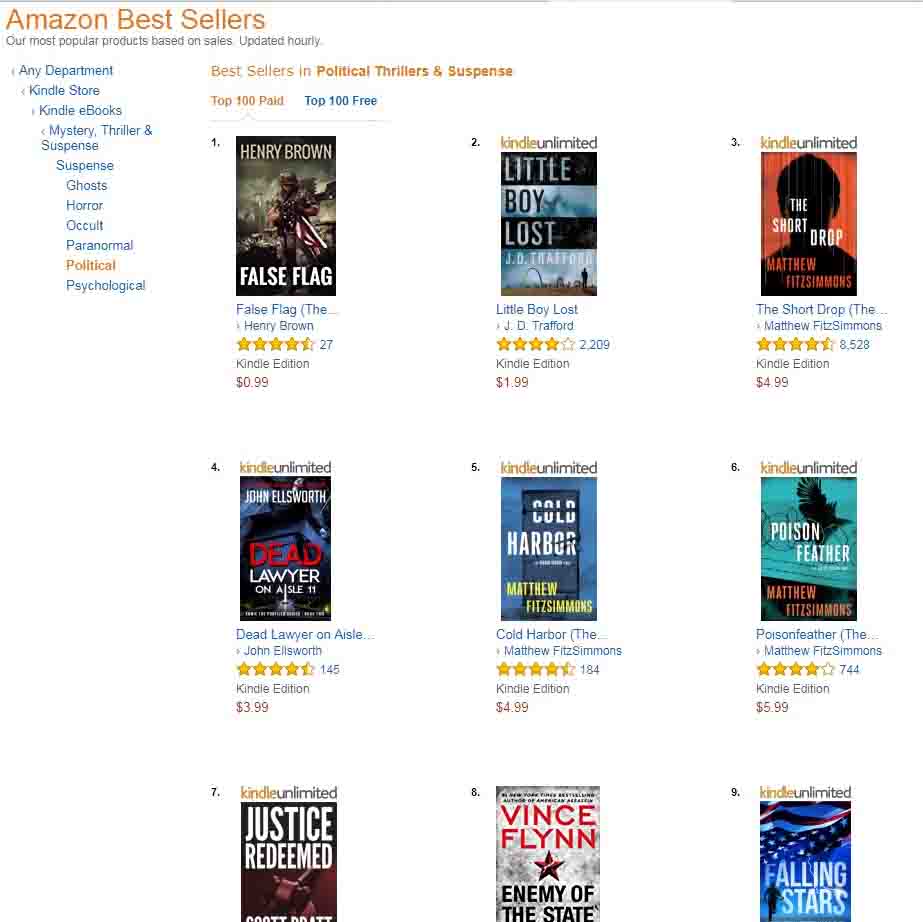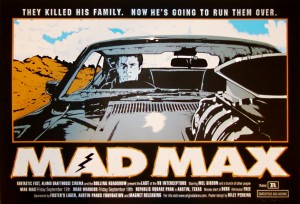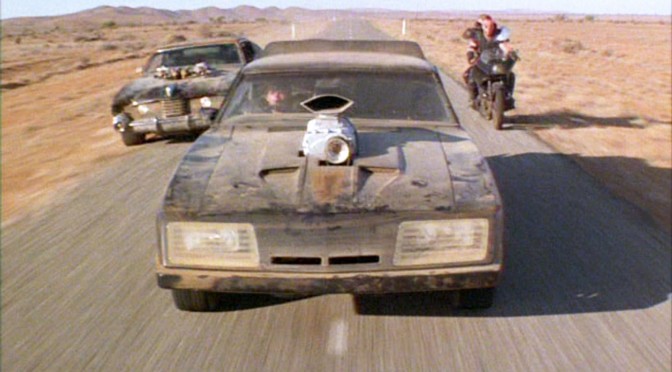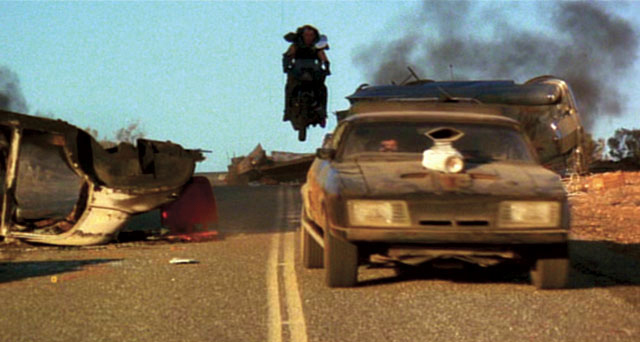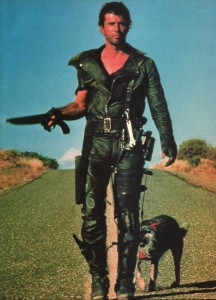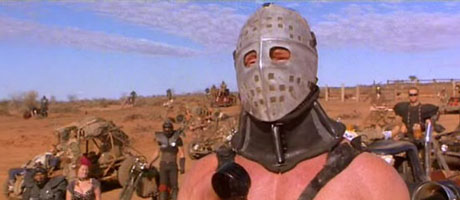The subtitle says “A Post-Apocalyptic Novel,” and this book is the first in “The New World Series.”
The story is told in flashback via a surviving character in 2066 “Cascadia.” That character is in bookend chapters that frame the narrative. The main story opens in the suburbs of San Diego right before an EMP turns out the lights, permanently. A little bit of time is spent establishing that the protagonist, Gordon Van Zandt, is a dedicated family man with just enough soy in his diet to make him palatable to female readers. He’s an Iraq veteran whose little brother is currently in the USMC, hoping to become a scout-sniper.
In the author bio section of the Amazon product page, the author claims to be a USMC veteran. That may be true–there is at least some rudimentary military knowledge evident. Maybe he had a rear-echelon clerk/jerk MOS. There were a few details here and there that didn’t sit right, but not enough to make you toss the book aside, by any stretch.
The EMP strikes the USA, and Gordon goes into Scramble, Forage, and Protect Mode. (While doing so, he explains what an EMP is far too many times for a reader with reasonable memory retention.) His family-first instincts kick into high gear right away, which cause him to make some tough decisions that others are not yet ready to make.
The plot toggles between Gordon’s ordeal, little brother Sebastian’s story, and federal-level politicians. For the most part, the character interactions are believable, although there is a high Character Stupidity Quotient in effect–especially when it comes to Sebastian. Sebastian is such an idiot that, were he the star of the show, I probably would have quit reading. (Ironic, because toward the end, I found his story the most interesting.) I lost patience and began to skim through the sub-plots with the Speaker of the House-turned-President, his wife, Vice President, assistants and generals. Those segments resembled a literary soap opera that aren’t really even necessary for the plot.
Speaking of plot, this one does not suffer from predictability. I wonder how much of that was by design and how much was because the author was just making it up as he went along. I strongly suspected the latter when it came to Jimmy, Gordon’s neighbor. When first introduced, the reader gets the impression Gordon barely knew Jimmy; but as the chapters plod forward, a transformation takes place and the two neighbors have been great friends for years.
One of the most annoying personality traits of Gordon Van Zandt is his tendency to make promises he can’t keep. A lot of the dialog is amateurish as well, but then I guess this is the author’s first novel.
I made the decision to buy this book after reading some of the complaints by the one-star reviewers that there wasn’t enough GRRRL POWER on display. Sure enough: there was a lot less feminist garbage than you get in the average novel–whatever side of the aisle the authors fall on. I was thankful for that, but I was hoping (if there was any evidence of author worldview at all) that the author would turn out to be a patriot or full-bore, unapologetic, firebreathing right-winger. The overall flavor, however, is Log Cabin NeoCuck. By the second novel it becomes blatantly obvious, but I’ll say more if/when I review the sequel.
I guess the only full-bore, unapologetic, firebreathing right-wing authors on the cultural landscape these days are under Virtual Pulp’s umbrella.




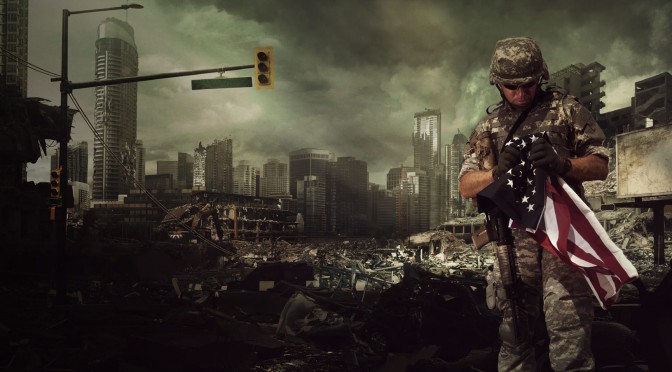
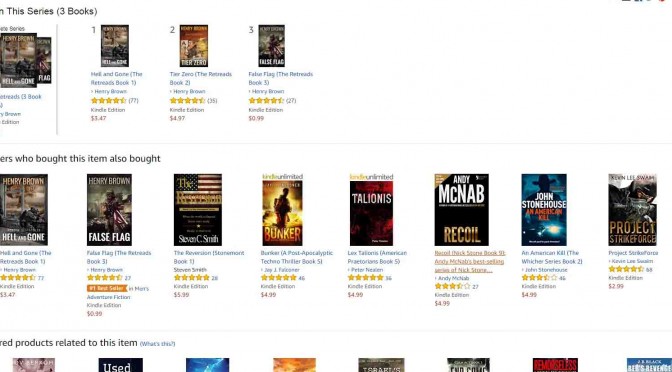

 Hell and Gone was originally written as a one-off military thriller, with an old-school adventure flavor. Fans, however, suggested a sequel. I wrote one, shooting intentionally for more of a throwback men’s adventure/paramilitary fiction vibe, as the cover suggests.
Hell and Gone was originally written as a one-off military thriller, with an old-school adventure flavor. Fans, however, suggested a sequel. I wrote one, shooting intentionally for more of a throwback men’s adventure/paramilitary fiction vibe, as the cover suggests. 